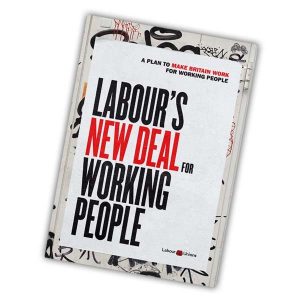 The announcement last week by the Government, trade union representatives (TULO and the TUC) and employers that an agreement had been reached to break ‘the log – jam’ between the House Of Commons and the House of Lords (described as ‘Westminster ping pong’) is of considerable concern to the Campaign and trade union members.
The announcement last week by the Government, trade union representatives (TULO and the TUC) and employers that an agreement had been reached to break ‘the log – jam’ between the House Of Commons and the House of Lords (described as ‘Westminster ping pong’) is of considerable concern to the Campaign and trade union members.
Critics have said that the agreement rows back on the commitment to full ‘day one’ rights in the New Deal For Working People. In fact the government abandoned that commitment by the introduction in the Bill of power to make regulations imposing on all workers a nine-month probationary period in which the right to unfair dismissal would be watered down. In some ways a straight six month qualifying period might provide greater protection to workers.
Certainly, the reduction of the qualifying period from the current two years to six months is to be welcomed. As is the agreement that the statutory limit on compensation for unfair dismissal will be removed (though the detail on this is not yet clear). However the details of the agreement reached have not as yet been explained beyond general statements that the deal had to be done to avoid the Parliamentary timetable slipping and to protect other ‘day one’ rights in the Bill.
It is said that the Bill needs royal assent prior to Christmas – so an agreement had be reached.
However, the Campaign notes that the ERB is tabled yet again for debate on 10th December in the Lords which means that, unless the government has reached an agreement with the Tories and the Liberal Democrats in the Lords, they can table further amendments on 10th December and hold up progress of the Bill further.
Is the agreement in writing and signed by the parties?
If so, it should be published in full in place of the summaries and speculation that have so far emerged.
Reference has been made by the Government that: “The discussions concluded that reducing the qualifying period for unfair dismissal from 24 months to 6 months (whilst maintaining existing day one protection against discrimination and automatically unfair grounds for dismissal) is a workable package.”
That may be so but the Campaign has always supported full day one rights for unfair dismissal without a six-month (or any arbitrary) qualifying period – and without a compulsory and lengthy period of ‘probation’ during which the right to unfair dismissal is watered down.
Experience show that employers will use any qualifying period of whatever length other than ‘day one’, to unfairly dismiss workers on spurious grounds shortly before the qualifying period is reached (‘fire first argue later’). There is no great burden on employers from a day one right to unfair dismissal so long as the employer only dismisses for a good and fair reason (such as misconduct or incompetence) and follows proper procedures.
The Campaign for Trade Union Freedom is of the view that late concession on top of the many compromises already in the Bill (and the many things the Bill does not but should have dealt with) confirms that there is a clear need for an Employment Relations #2 Bill and will be campaigning during 2026 on this issue.



